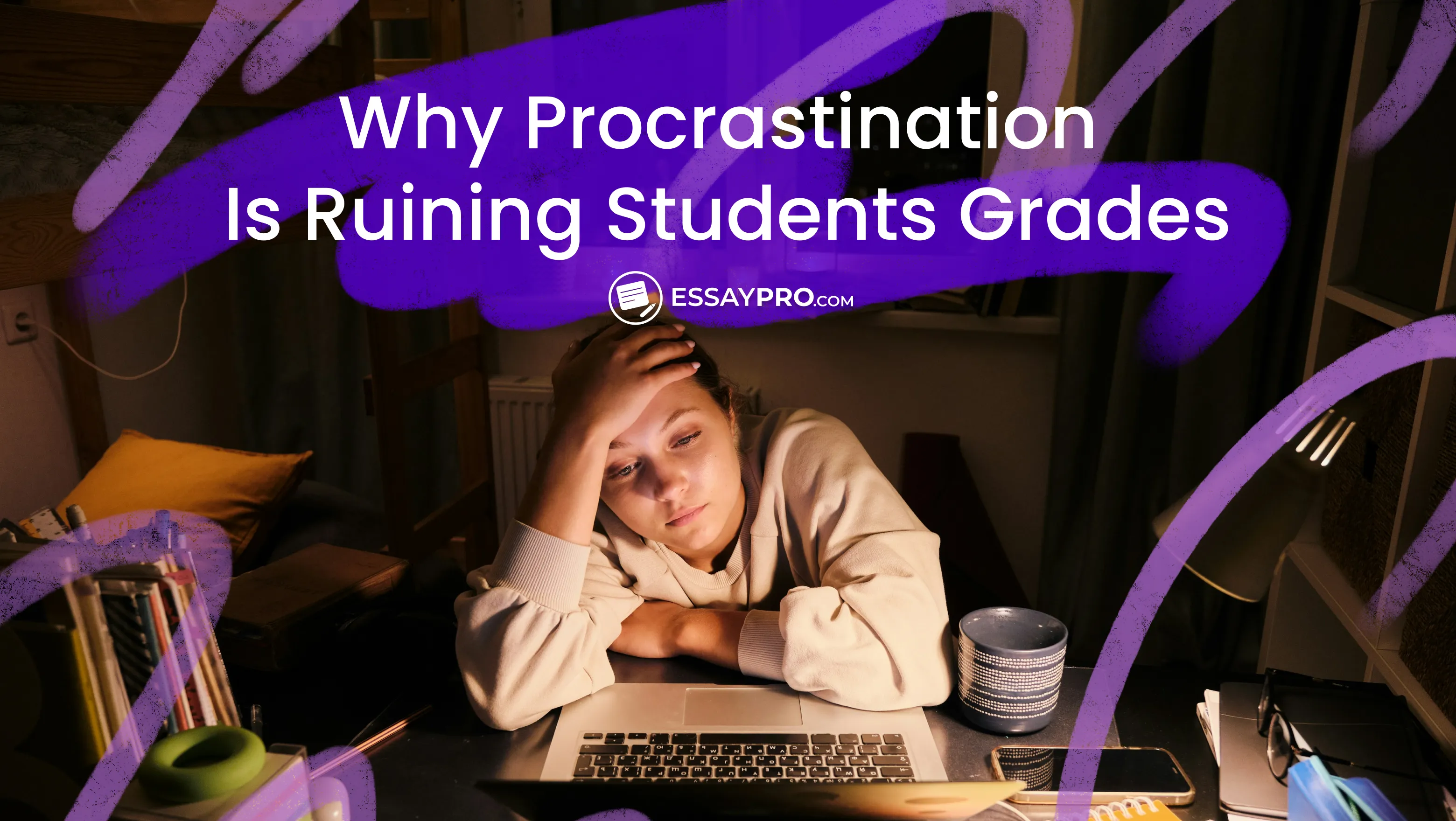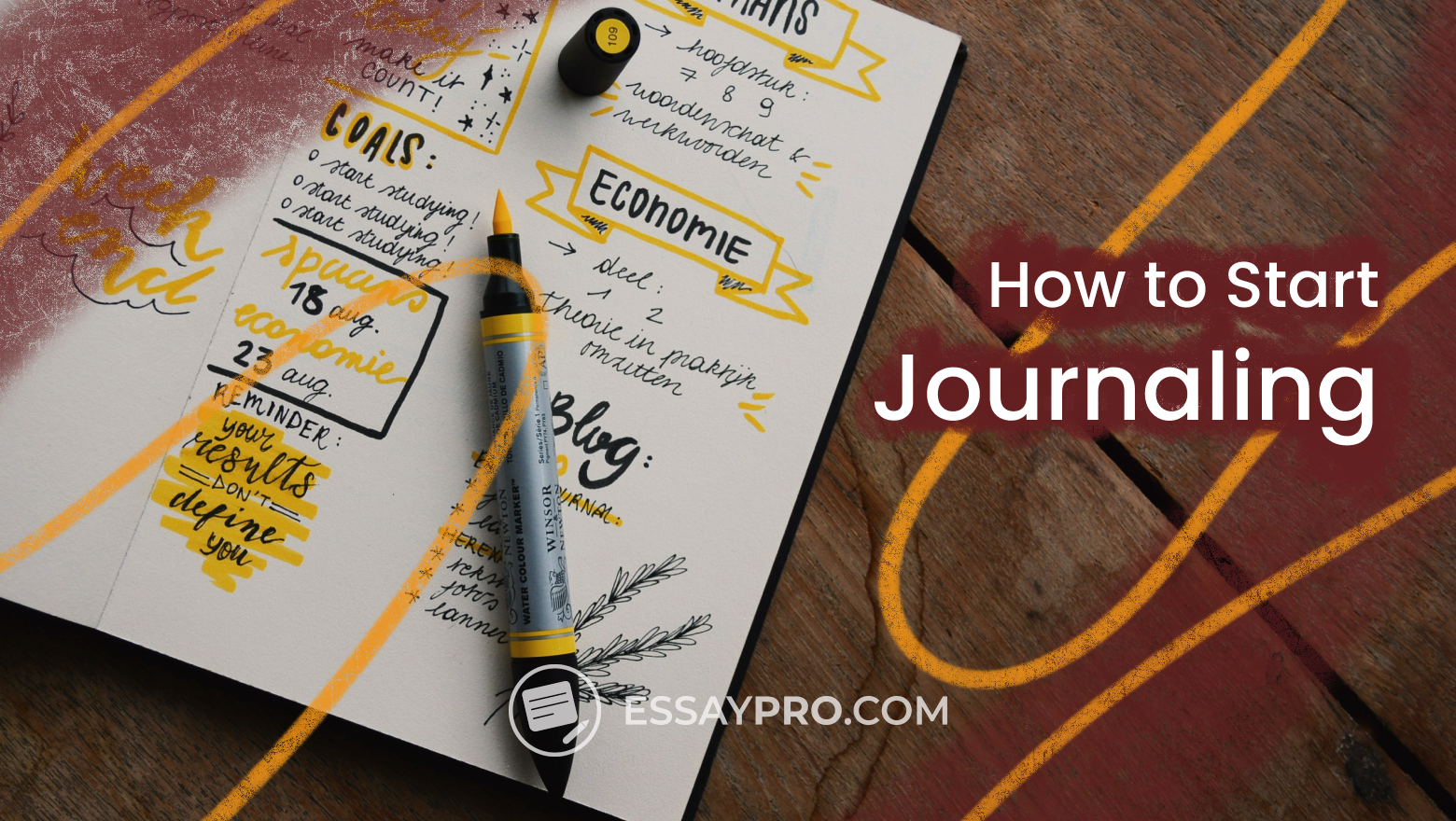Key Takeaways
- Between 80–95% of college students regularly delay their academic tasks.
- Around 46% postpone term papers, while nearly a third wait too long to study or complete readings.
- Procrastination lowers GPA by -.16 and weakens performance on both assignments and final exams.
- 94% of students feel less happy after delaying work, and 18% experience strong negative emotions.
- About 74% stay up later than planned each week, losing rest and focus needed for consistent progress.
The numbers show how common and serious academic procrastination truly is. Roughly 20 to 25 % of people procrastinate chronically. Within college campuses, the number rises sharply: between 80-90% of students admit they put off their academic tasks. And it doesn't even end there: one study showed that 8% of respondents identified low confidence as a direct cause of their academic procrastination. Stress levels follow close behind.
This article will go over the procrastination stats among students and how this habit affects their grades. And remember that external assistance can sometimes help you finally get to work. EssayPro is a reliable space where college students can buy a custom essay when deadlines are looming.


How Many Students Procrastinate?
The percentage of students who procrastinate is higher than most expect. Roughly 86% of high school students admit they delay assignments, for example. They try to balance their packed days, but the endless online distractions make focus even harder. Learning how mindfulness supports creative writing can help students slow down, refocus, and approach their tasks with clarity. And they understand it well, too: over half recognize intentional delay as a genuine problem.
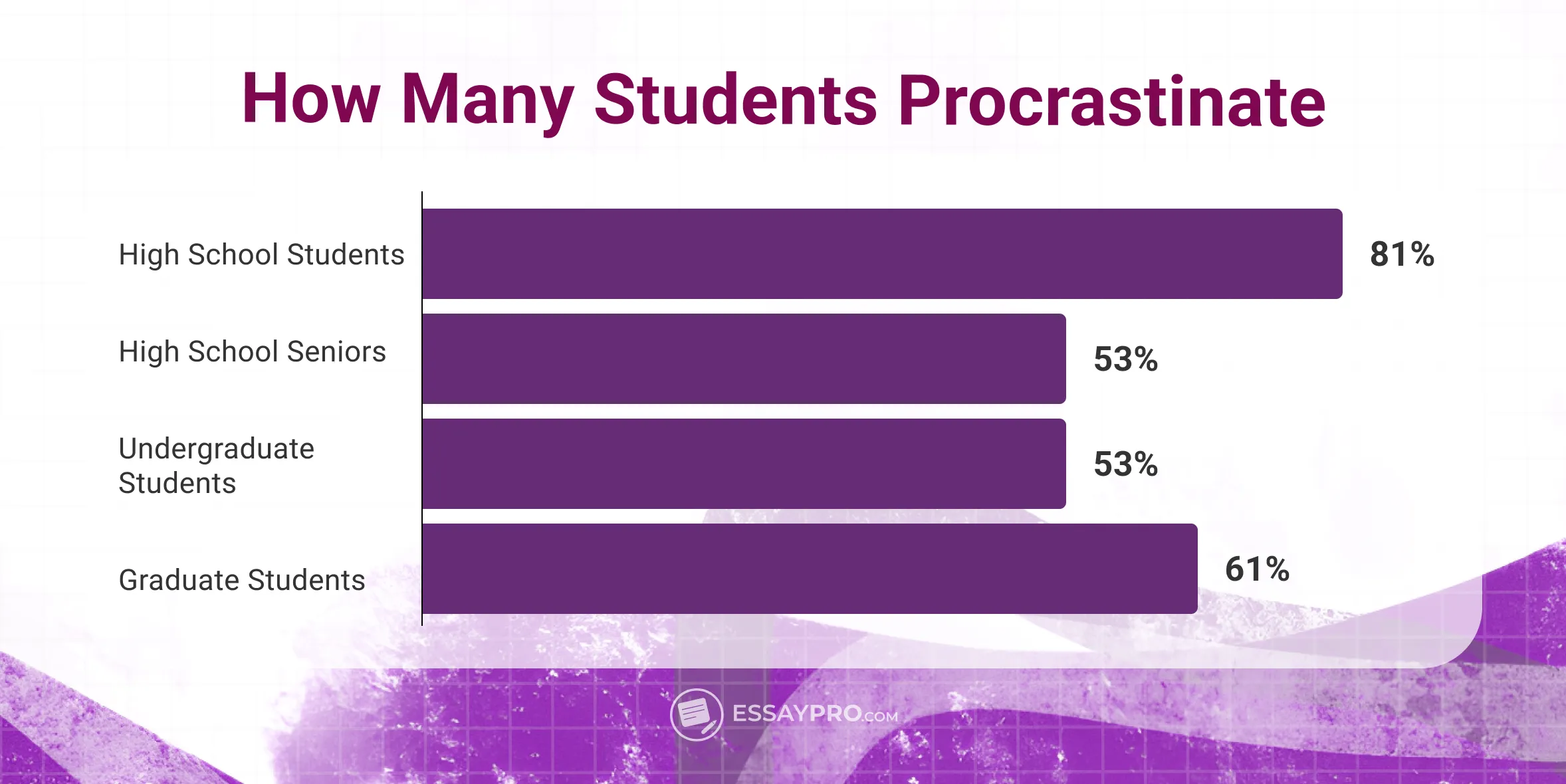
Procrastination in college climbs even higher:
- 86% of high school students procrastinate on assignments.
- 53% of undergraduates procrastinate frequently.
- 46% of students procrastinate on writing term papers.
- 61% of graduate students procrastinate frequently.
- Nearly 75% of first-year college students study less than ten hours per week.
- Only 5% of first-year students study more than twenty hours weekly.
These patterns point to an important issue: academic stress and overcommitment clearly influence modern studying habits.
What Tasks Do Students Procrastinate On?
Studies show that writing-heavy projects lead the list in procrastination among students, with nearly half of them postponing term papers. The habit of delaying regular coursework (readings, exam prep, etc.), affects roughly one in three students. Even routine responsibilities such as attendance and administrative tasks are often pushed aside, though at lower rates. Over weeks, these choices shape habits that trade steady progress for late-night sprints.
Take a look at the table below to see what tasks invite the most delay:
Learn what is a creative essay and how to write one with EssayPro's detailed guide.
Why Do Students Procrastinate?
Behind every instance of academic procrastination is a reason that feels convincing in the moment. The main reasons students procrastinate often reflect deep emotional and practical struggles that grow over time.
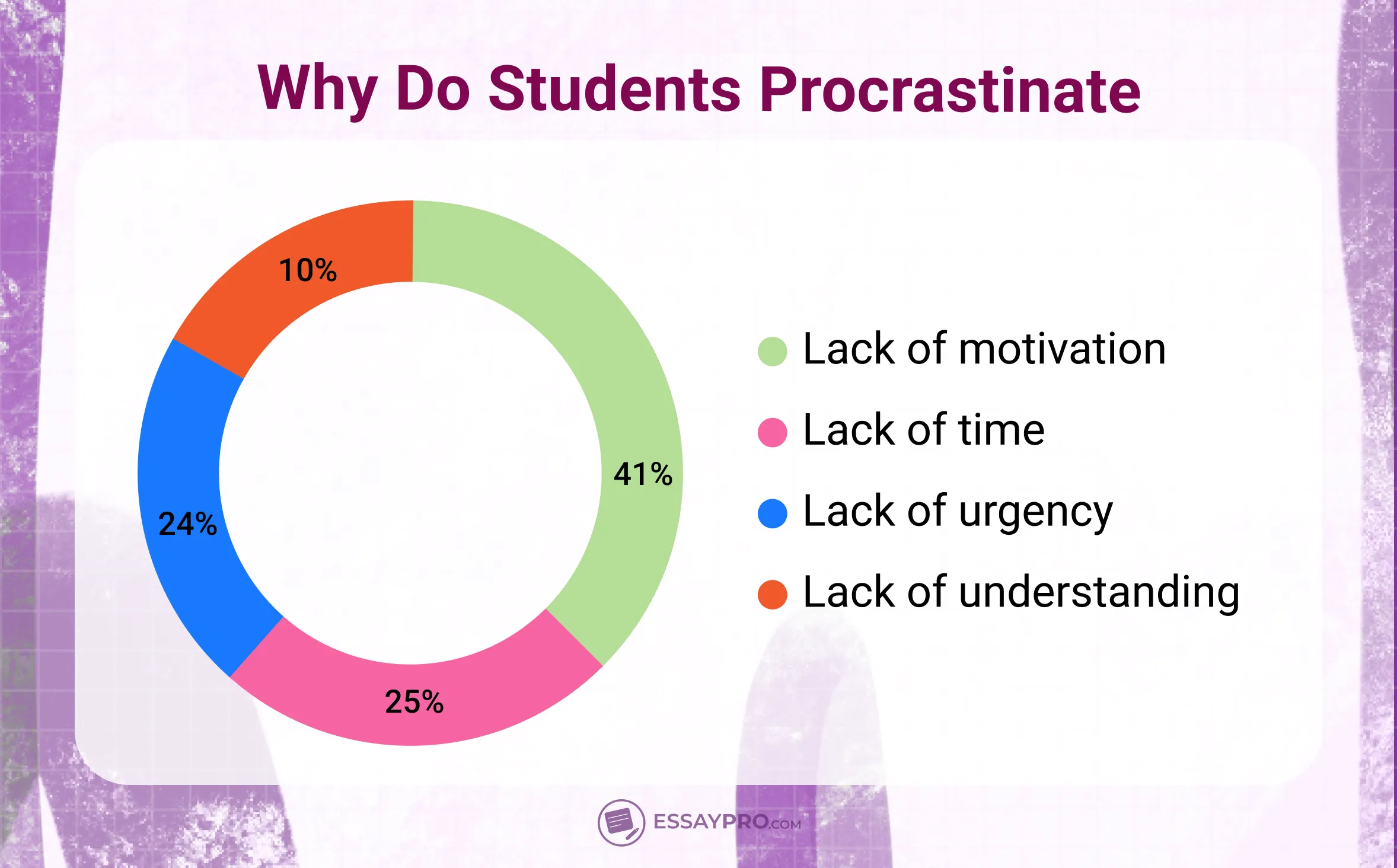
- Fear of failure. Worry about poor results because of low self-esteem can freeze action before it even begins. University students sometimes imagine every flaw in advance, so they wait, hoping self-confidence will arrive later.
- Perfectionism. Many want their work to match an impossible standard. Instead of taking time to complete tasks, they keep chasing a version that never feels ready.
- Poor time management. 25% of students underestimate how long the entire writing process can truly take. With multiple classes and part-time jobs on the side, hours can vanish faster than expected.
- Distractions. Phones, social media, and streaming pull attention away from 24% of students. Each "quick break" stretches into lost study time.
- Lack of motivation. 41% of students procrastinate because of this. Academic tasks that feel dull or irrelevant slip down the list. Without a clear reason to care, effort fades quickly.
What Do Students Do While They Procrastinate?
When university students procrastinate, the time rarely feels wasted. Most drift toward small comforts that feel harmless at first. A quick episode or a short scroll seems manageable until you notice that the hours have gone by. The habits that you think give your mind a break drain the energy meant for the academic tasks you actually have to do. By the time focus returns, motivation is no longer quite there. Common activities among college students procrastinating are:
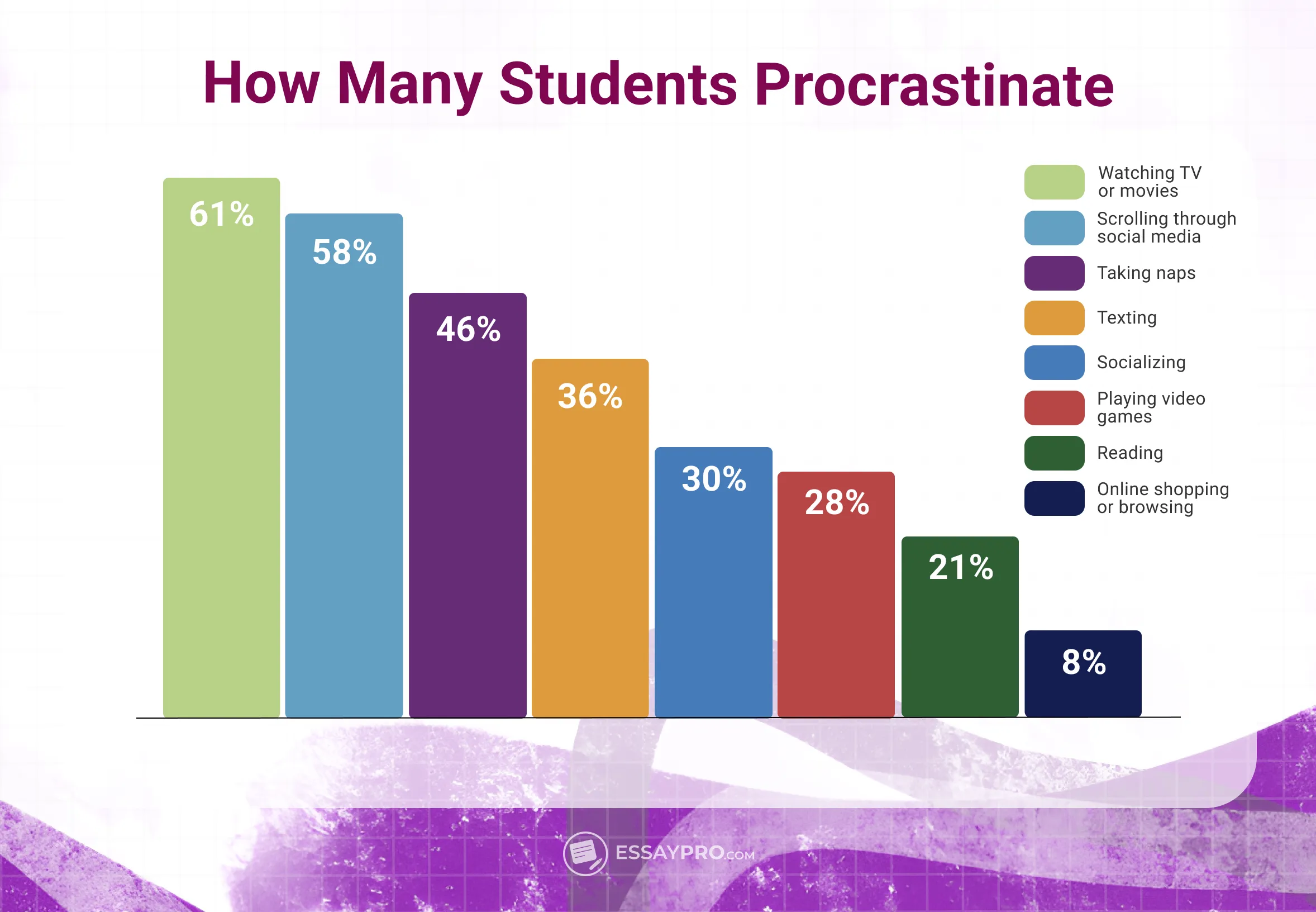
- Watching TV or movies: 61%
- Scrolling through social media: 58%
- Taking naps: 46%
- Texting or chatting with friends: 36%
- Spending extra time socializing: 30%
- Playing video games: 28%
- Reading casually: 21%
- Online shopping or browsing: 8%
How Does Procrastination Affect Grades?
Procrastination steadily worsens academic performance. Each delay shortens the time left for careful revision. What begins as a plan to "start later" often ends in late submissions and essays that read more like drafts than finished work. Effort gets replaced by urgency, and precision gives way to panic.
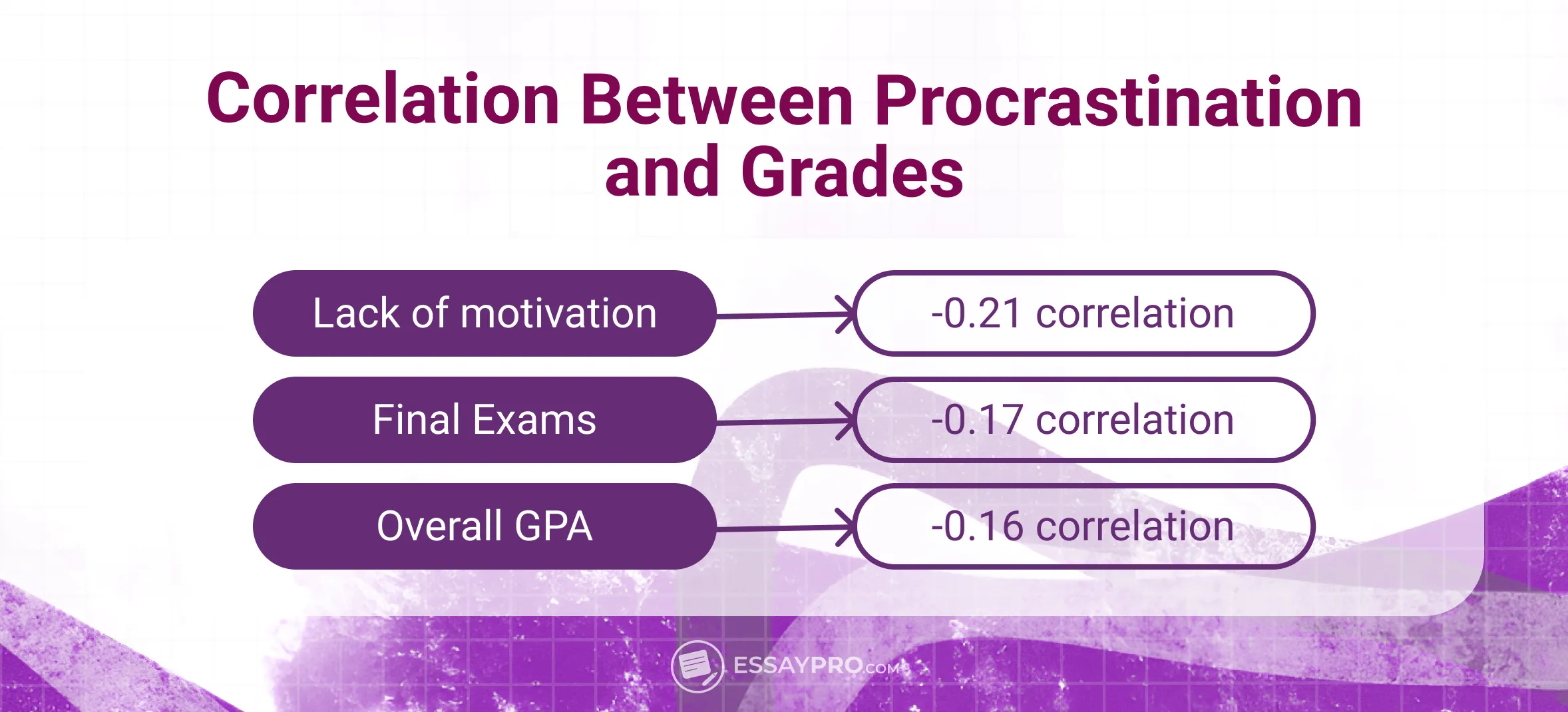
The numbers speak quietly but firmly. A meta-analysis of procrastination and its effects on grades revealed the following: procrastination correlates with lower GPA (-.16) and poor academic performance on assignments (-.21) and final exams (-.17). Every postponed outline, every half-edited paragraph, shows up somewhere in those decimals.
Picture a student facing a term paper at 10 p.m., convinced that a single burst of focus can cover lost ground. They write through the night and trim analysis to save time. Or they skip citations because other sections need more attention. The next day, their grades reflect fatigue rather than genuine thought. Over time, that pattern repeats: small choices shaping a steady decline.
You can check out our guide on writing essay movie review while you're at it.
Negative Consequences on Mental Health: Stress and Burnout
Procrastination in students leaves its negative outcomes noticeable long after the deadline passes. Each delay adds to the tension. Suddenly, you have a pile of unfinished work and a rush to make up lost time. What starts as a simple choice to postpone tasks a little often builds into stress you can't ignore. That’s mostly why is procrastination bad for students. University students describe feeling guilty for wasting time, then anxious as the clock runs down. Research backs up these experiences:
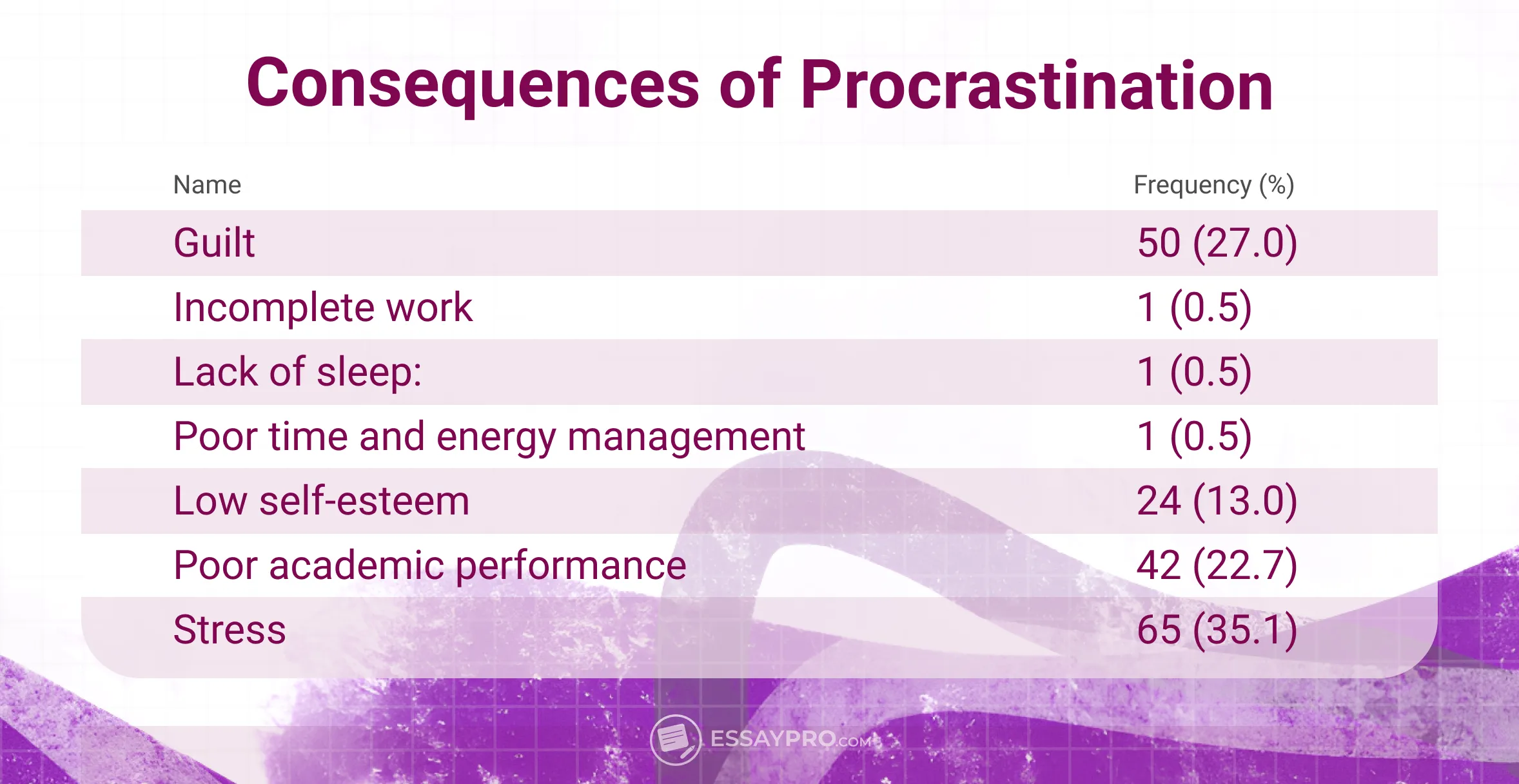
- 94% say procrastination makes them less happy.
- 18% describe those negative emotions as severe.
- 74% delay sleep at least once a week, not to work, but to avoid starting.
Many notice the subtle signs, too: lingering restlessness and slipping focus, with the frustration building as academic tasks and work responsibilities keep piling up.
How to Stop Procrastinating: Solutions for Students
Academic tasks quickly pile up when procrastination takes over. Deadlines, as a result, feel heavier than they are. The steps below will help you prevent other negative outcomes that follow delaying tasks:
- Start with a clear objective. Don't aim to study more. Instead, set a single action: write your thesis statement, summarize one source, or answer two review questions. Specificity removes the pressure.
- Plan your workload backward. Schedule smaller checkpoints only after looking at the deadline: research by Wednesday, draft by Sunday, etc.
- Create a distraction-free zone. Often, college students procrastinate because of the endless distractions. So, leave your phone in another room and close unrelated tabs. The only task on your screen should be the one you're handling at the moment.
- Use the 30/10 focus method. Work in 30-minute blocks followed by 10-minute breaks. Keep doing this until you actually complete tasks.
- Protect mental health. Get adequate sleep consistently and eat healthy meals away from your desk. Beyond that, you should take a longer break midday. This will help your mental well-being and physical health at the same time.
- Document progress daily. End each session by noting what's finished and what's next.
- Build accountability. Pair up with a classmate or join a study group. Shared expectations turn plans into action and keep motivation from fading.
Before You Close the Tab: Improve Your Academic Procrastination
For university students, the slow drift of procrastination often turns into poor academic performance, where late essays and rushed projects lead to lasting negative outcomes. Awareness helps, but change takes guidance and structure.
That's where EssayPro steps in. Our platform can connect you with one of our writers so you can break the cycle of panic and postponement. We offer all kinds of academic guidance, from custom college essays to speech writing services.
FAQ
How Much Does Procrastination Affect Students?
The negative consequences of procrastination show up fast: stress builds and confidence drops. Grades often follow the same path. When essays are rushed or assignments arrive late, the result is poor academic performance that doesn't reflect what students actually know.
What Is the Biggest Cause of Procrastination Among Students?
The biggest reason many college students procrastinate is fear. Specifically, the fear of failure and the negative consequences that come with it. When you doubt your ability to do something well, waiting feels safer than trying. That fear usually grows out of low self-esteem.
How to Help Students Stop Procrastinating?
Strong teaching strategies help students see work as progress, not pressure. For example, when teachers break tasks and set clear steps. Active lessons help too: group discussions or mini-deadlines. Over time, these habits turn starting early into second nature. Once college or even high school students feel capable of managing time and effort, procrastination starts to fade.

Ana Ratishvili
Ana is a professional literary writer with a Master’s Degree in English literature. Through critical analysis and an understanding of storytelling techniques, she can craft insightful guides on how to write literary analysis essays and their structures so students can improve their writing skills.
- Akinsola, M. K., Tella, A., & Tella, A. (2007). Correlates of Academic Procrastination and Mathematics Achievement of University Undergraduate Students. Eurasia Journal of Mathematics, Science and Technology Education, 3(4), 363–370. https://www.ejmste.com/article/correlates-of-academic-procrastinationand-mathematics-achievement-ofuniversity-undergraduate-4083
- Does Procrastination lead to lower grades? | SiOWfa16: Science in Our World: Certainty and Controversy. (2016). https://sites.psu.edu/siowfa16/2016/09/08/does-procrastination-lead-to-lower-grades-2/
- Shaked, L., & Altarac, H. (n.d.). Exploring academic procrastination: Perceptions, self-regulation, and Exploring academic procrastination: Perceptions, self-regulation, and consequences consequences. https://files.eric.ed.gov/fulltext/EJ1361713.pdf

